STOP - or at least pause! Books have a place in dyslexia therapy.

Books have a place in dyslexia therapy. Don’t throw them out, but ask where and when?
Lately I have seen the wave of advice from people to throw out their traditional books and it causes me great pause. I have always been one to pull books out of the giveaway piles and dumpsters - although I will agree that some do in fact need to be let go, I don’t want educators to over-correct in the name of “science”.
There certainly is a place, and necessity, for traditional or authentic books within reading instruction. It is imperative that as educators we understand the purpose of the lessons and materials we use with students. While decodable text lays the critical foundation for our students with dyslexia or those first learning to read, we must understand the role it plays and for how long. We don’t want students remaining in decodable text forever. Decodable text is vital to our instruction - a necessary step on the path to learning to read, but exactly that - a step to move us forward. (...
Syllable Division
This is part 3 of the syllable types blog series. Read part 1 and part 2.
Our students encounter multisyllabic words daily in the spoken and written word. One of the hallmarks of dyslexia is "...difficulty with accurate and/or fluent word recognition and by poor spelling and decoding abilities..." (International Dyslexia Association, Dyslexia Definition). Just as students need explicit instruction in early decoding skills, they need reliable decoding strategies as they move into reading multisyllabic words. These word-attack strategies are necessary for students, especially those struggling with reading, so they can avoid falling into the bad habit of guessing. Strong readers subconsciously break words into syllables and meaningful parts (think affixes and roots) when reading new unknown words. Explicitly teaching students HOW to approach a larger multisyllabic word sets them up for success and is especially important for our dyslexic and struggling readers.
What is Syllable Divisio...
Tips and Scaffolds to Aid Handwriting Skills
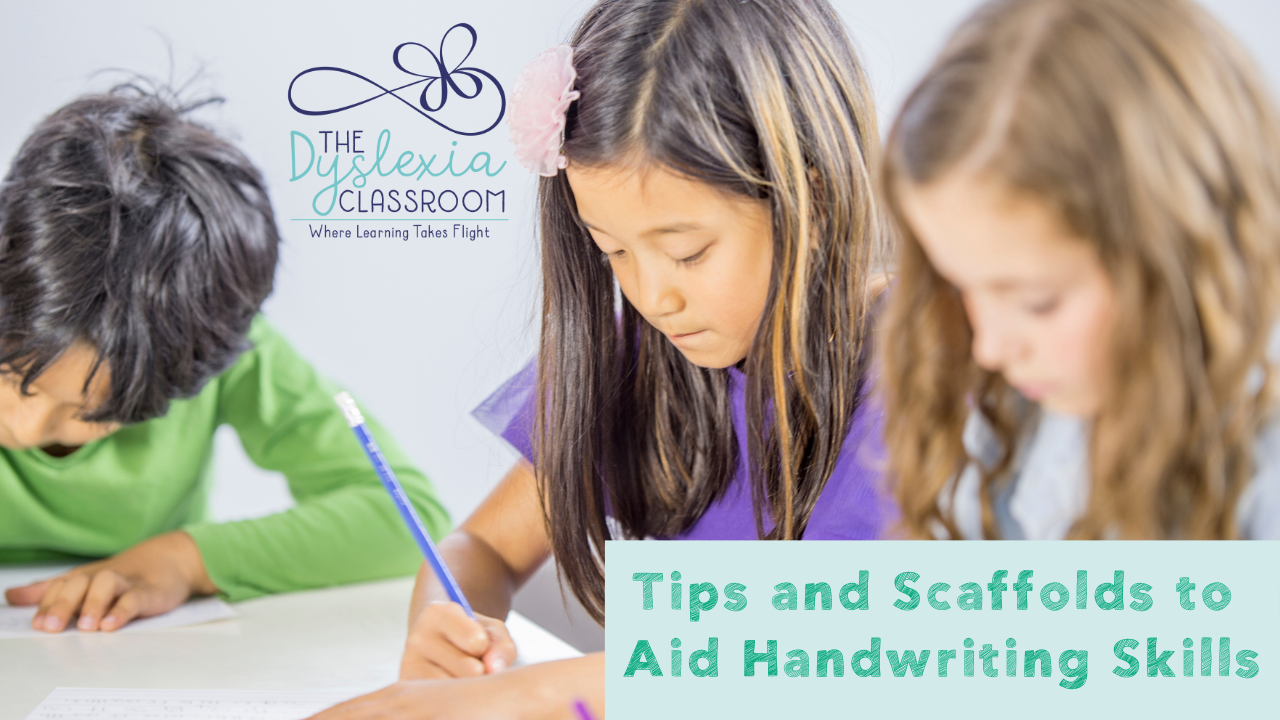
Do you remember when you first learned to drive a car? There is a lot of thinking going on! The number of things you had to think about - how to start the vehicle, checking the mirrors, making sure the seat was in the correct position, looking carefully at the dashboard, making sure you used your blinker, the list goes on and on.

Learning to write legibly is similar to learning how to drive a car. At first, it takes a lot of practice and cognitive energy, but once automatic driving and handwriting are done easily, it frees up mental energy for other things. A lot is going on.
Handwriting instruction is essential for all students, especially those with dyslexia and dysgraphia. Until students can form letters with reasonable legibility and speed, their concentration and focus are often spent on letter production. When students have not reached automaticity of letter formation, it taxes the working memory and places higher demands on cognitive resources.
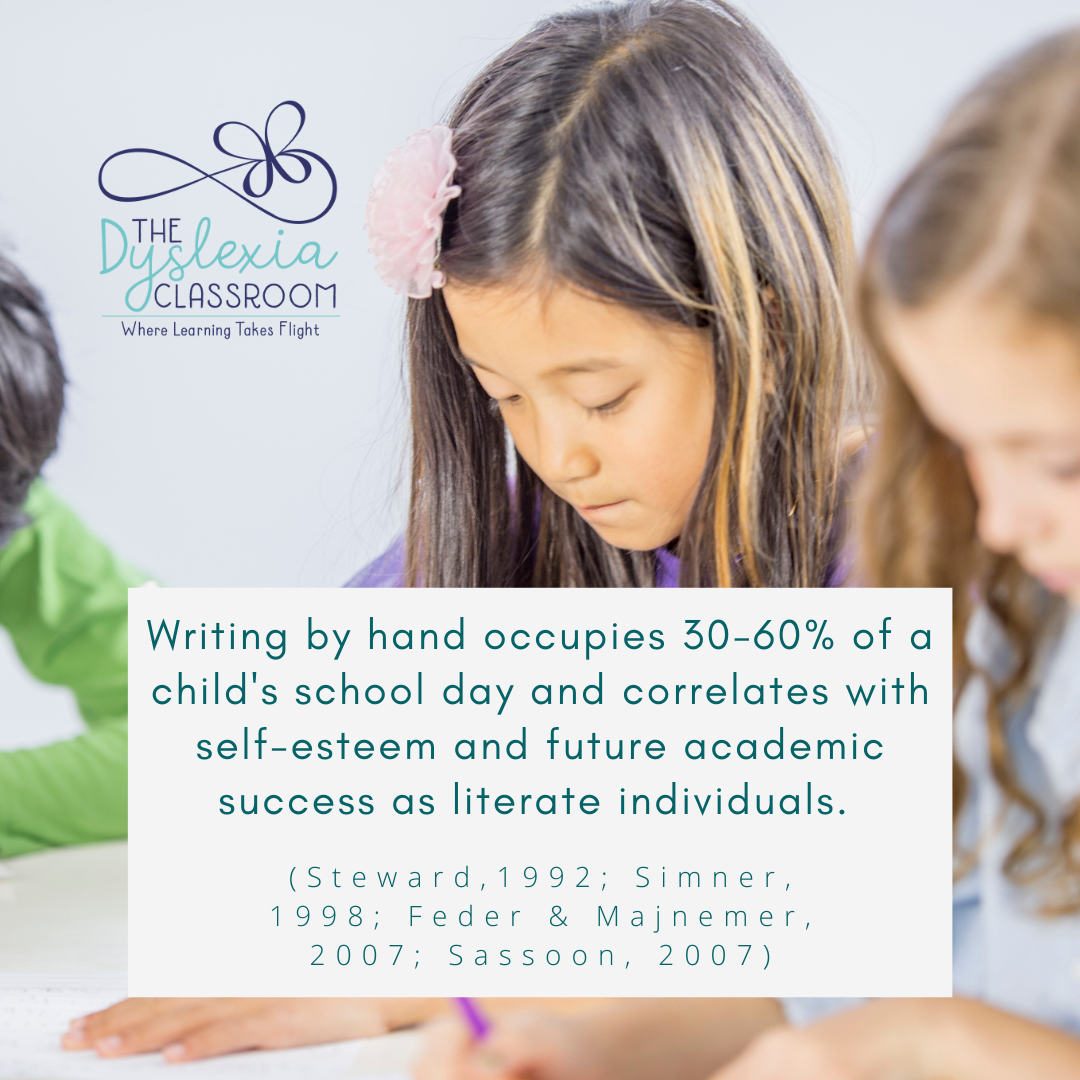
Why Teach Handwriting?
T...
Math and Dyslexia: Quick Tips for Word Problems
For many students with dyslexia, word problems in math can be especially challenging. Why? Dyslexia is a language-based learning difference. There is a language to math that may often be overlooked.
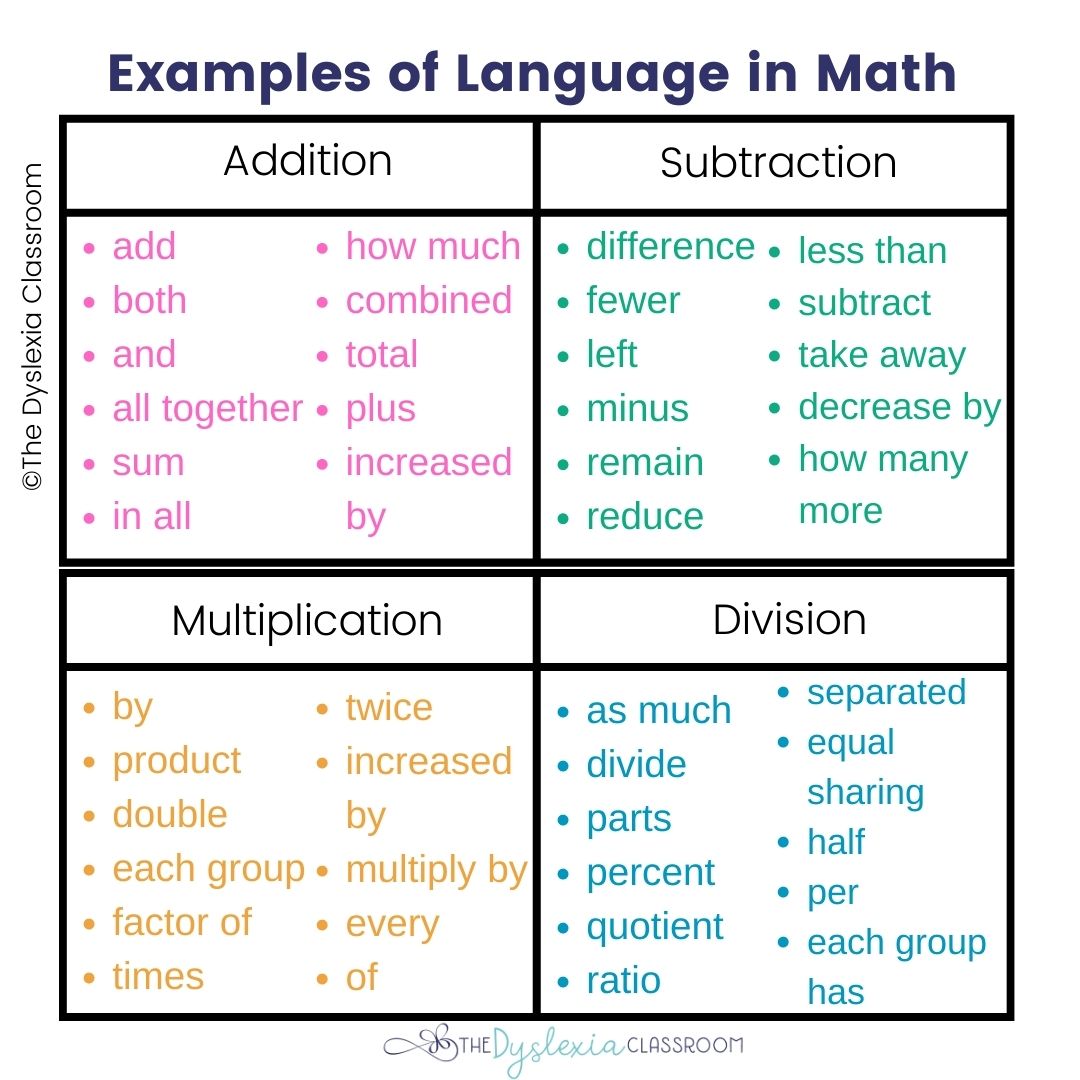
We need to break down the vocabulary in terms of math problems and explicitly teach these to students. You can have students highlight or underline these terms and essential information as they work with word problems.
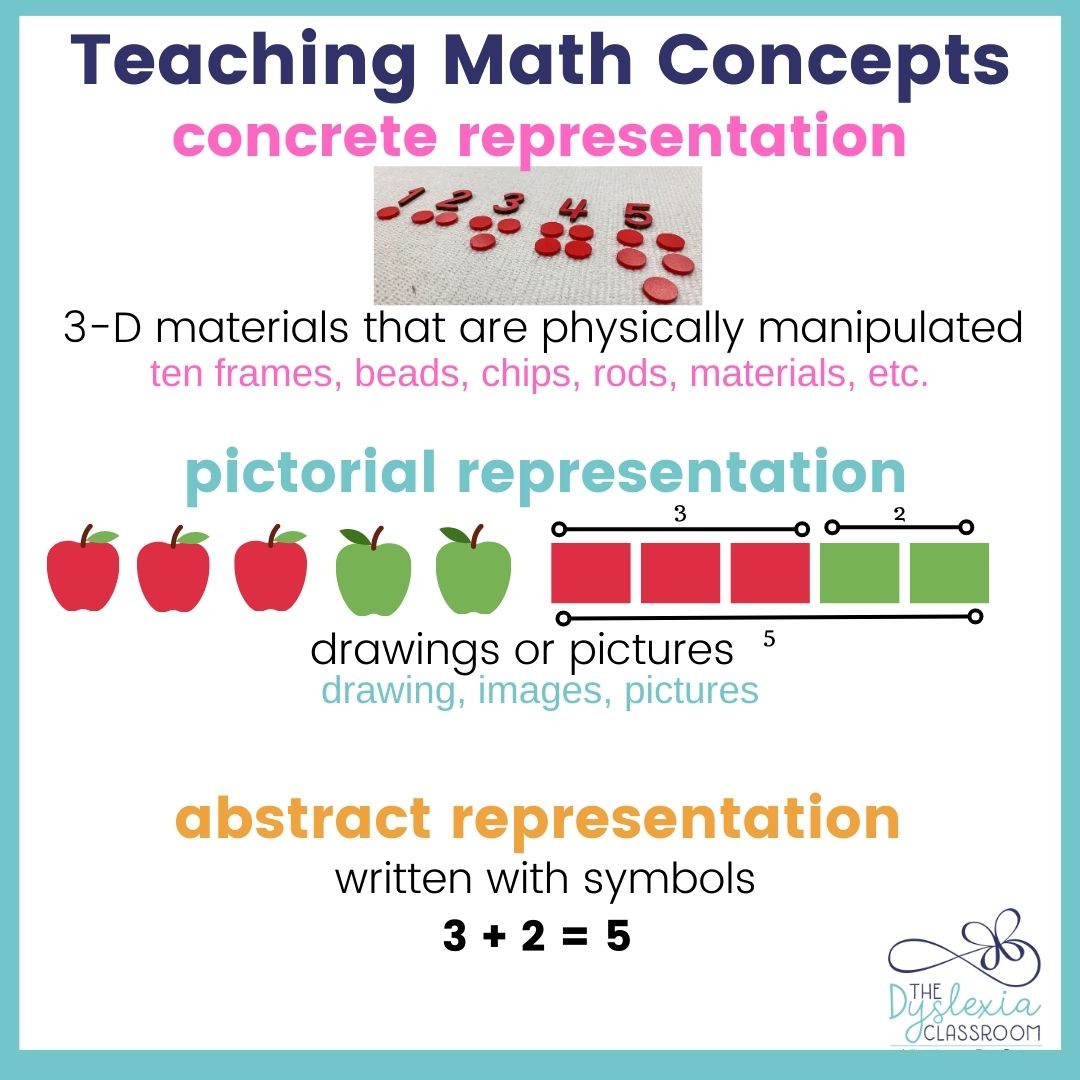
In addition to language, many students with dyslexia have difficulty with sequence, order, and concepts of time. In multi-step word problems, students need to make sense of what needs to be solved first. Teaching students to identify, and then number, what needs to be done first, second, and so forth, can assist in the sequencing of the problem.
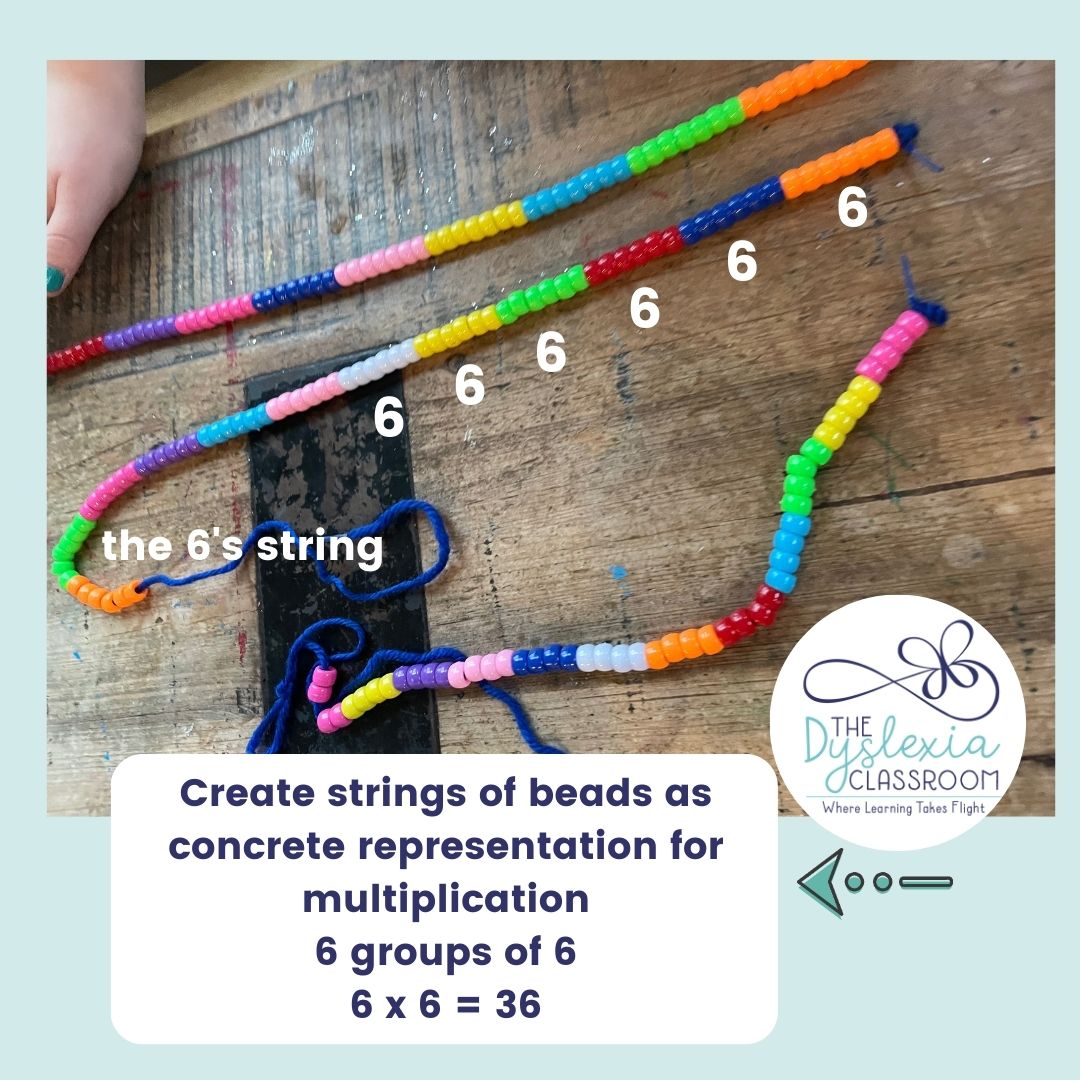
Many dyslexic learners have strong visual and spatial reasoning skills. So, teaching through concrete, think manipulatives and pictorial representations, those drawings, benefit students in gaining an understanding of concept...
Knowing the Hidden Impacts of Dyslexia
Even though the official Dyslexia Awareness Month is ending, it remains a daily topic of conversation and concern for those impacted by dyslexia. I encourage you to continue discussing dyslexia, reading instruction, and the science behind learning. We want to bridge the research to our instructional practices and address social and emotional wellbeing to provide the best outcomes for dyslexia learners. For this reason, I want to revisit this blog which addresses the hidden impacts of dyslexia.
As educators and parents, we often hyper-focus on the academic components surrounding reading and writing for dyslexic learners. This makes sense because dyslexia shows itself in the educational setting. And yet, there is so much more that dyslexia impacts. Unknown to most people, many impacts of dyslexia reside below the surface, hidden from view, yet their effects can be profound.

This image 👆 is a powerful reminder that what you see isn't the whole picture. This is especially true for o...
Why Do We Talk About Language and Dyslexia?
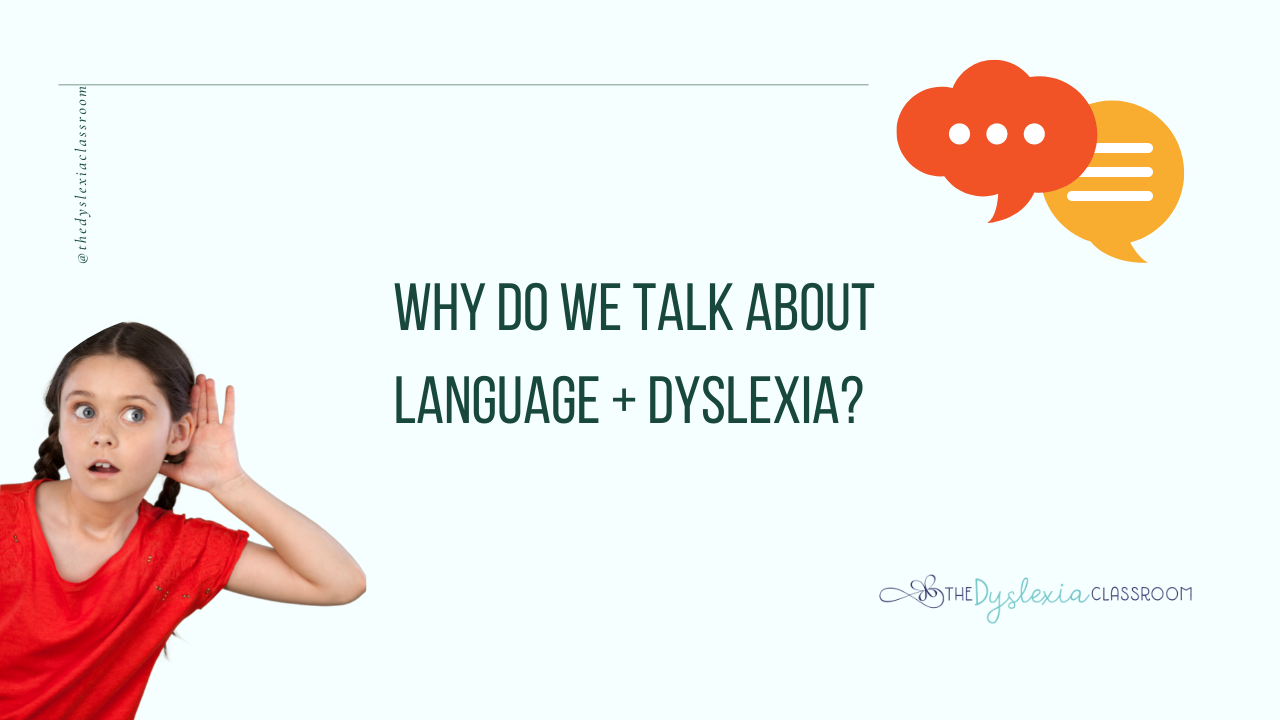
Academic challenges for those with dyslexia become the forefront of focus in the school-age years. When people speak about dyslexia, the conversation often surrounds reading and spelling, which makes sense as difficulties with accurate and fluent reading are a primary characteristic of dyslexia. In addition to the reading component, we can look at dyslexia through the lens of language. Why?

Dyslexia Is a Language-Based Learning Difference
Dyslexia falls under the Language-Based Learning Disabilities (LBLD) umbrella. What does this mean? Language-based learning disabilities refer to a spectrum of difficulties related to understanding and using spoken and written language. Dyslexia is a cluster of symptoms impacting language skills such as reading, spelling, and writing.
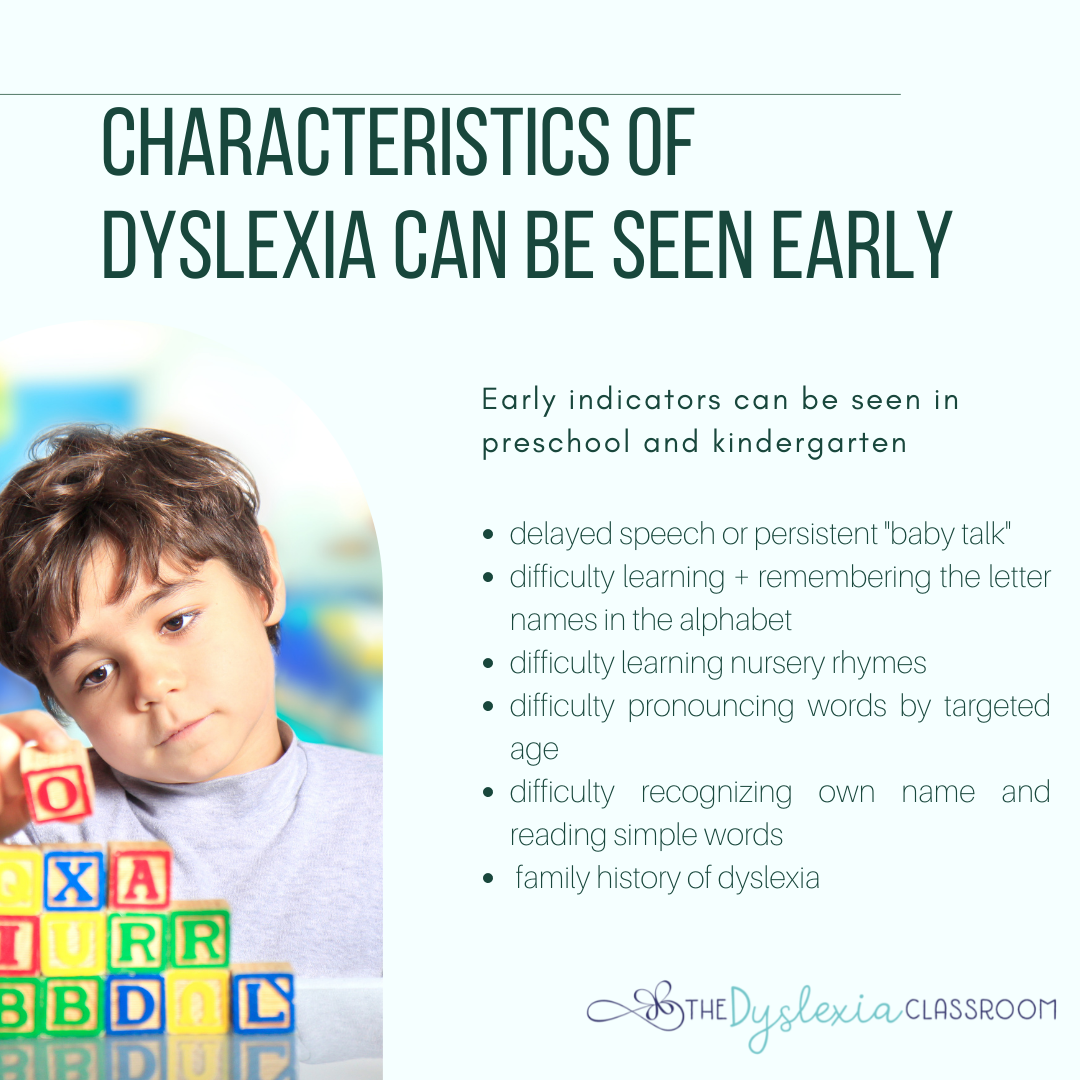
Characteristics of dyslexia can be seen early, and many of the early indicators for dyslexia are rooted in language. For young children in the early ages of school, oral language competence underpins the developm...
Did You Know That October is Dyslexia Awareness Month?
October is Dyslexia Awareness Month! Do you know that dyslexia is a topic around the globe? It's true!
Dyslexia impacts people across all languages, races, socio-economic statuses, and genders. While the prevalence rates for dyslexia may vary somewhat across writing systems, there appears to be core deficits across writing systems in the area of phonological deficits (Goswami, 2015).
I have had conversations with people worldwide regarding dyslexia and its instructional and emotional impacts on our children. We are all seeking the best ways to help close the reading gap and meet student needs in a way that preserves their emotional well-being and sets them up for success.

Unfortunately, there are still people and scholars that think dyslexia does not exist. To that, I say, look at the brain neuroscience, the fMRI, and the years and years of research about dyslexia, and then #saydyslexia because our children deserve to have educators and our society understand their journey.
My...
Additional Support For Dyslexic Students' Self-Confidence
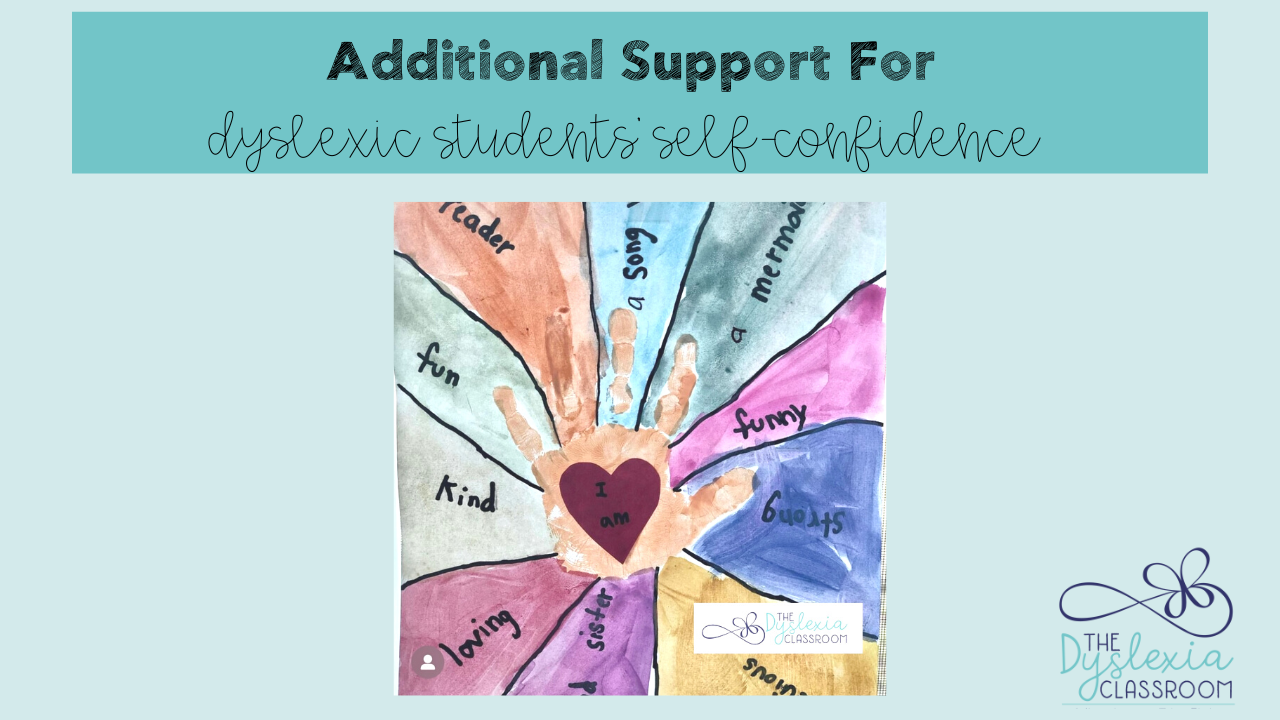
*This is an extension of the blog post How to Support Dyslexic Students' Self-Confidence. Read more about dyslexia strengths here.
When the Excitement of the New School Year Wanes
The beginning of the new school year can elicit all kinds of emotions. Do you remember the excitement and nervousness that comes with starting something new? Those butterflies in your stomach flutter between feeling sick to your stomach to a little twinge of adrenaline? For many, the beginning of the school year can feel like this.
As we move into the daily school routines and schedules, the new school year's excitement may be waning or bringing into light some different emotions. For many students with dyslexia and learning differences, as the newness of school wears off and the lesson pace increases, the academic pressures and demands can leave students feeling more anxious than excited. The feelings of anxiousness and frustration may arise due to academic hurdles, new routines, inappropriate or denied ...
Code and Read - How using diacritical marks aids students with dyslexia
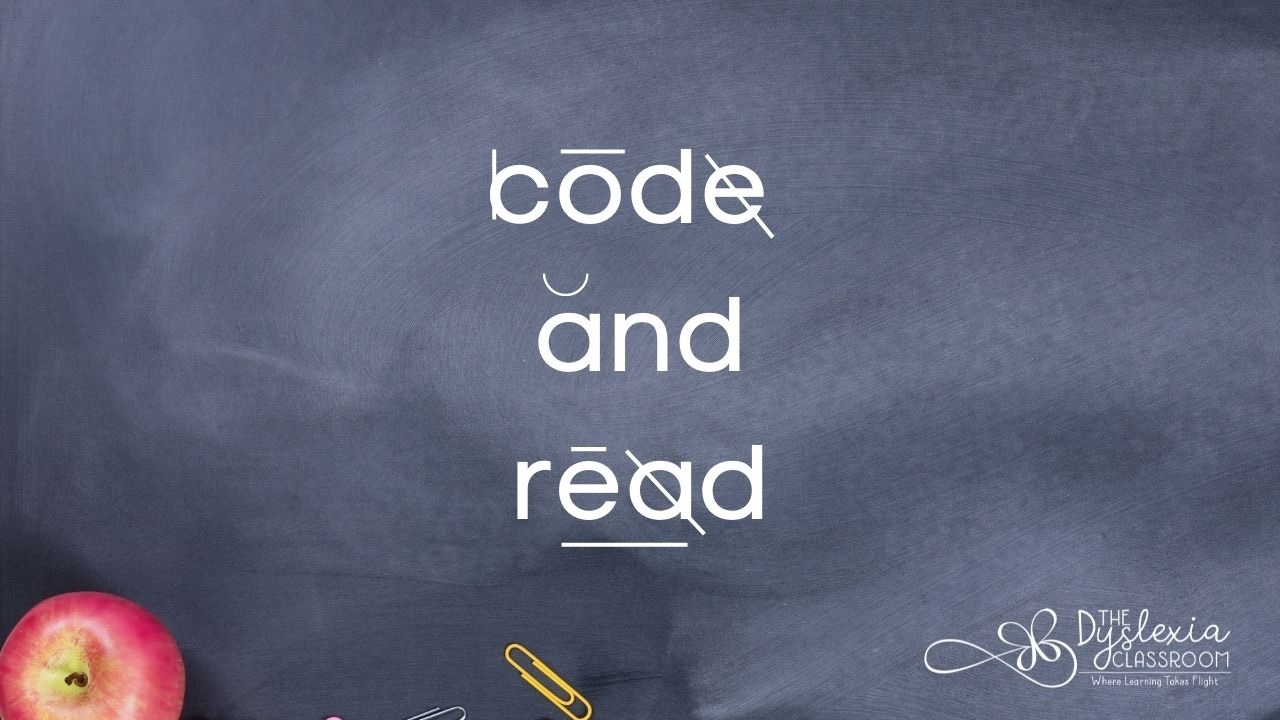
At a recent training, one of the participants asked me about our students using coding (the diacritical marks used when analyzing words) and was unsure of the benefits. I love that she asked me this because it is also something many parents may find unfamiliar.
Coding words allow students who are learning to read, who have dyslexia, or who may struggle to have a clear strategy for decoding unknown words. The use of set markings is a scaffold within our instruction that helps students focus on key components of a word. Coding removes the guessing of words because students have an explicit and systematic approach to accessing unknown words. Coding is taught systematically and explicitly through multi-sensory learning within a structured literacy approach.
The goal of coding is to gain reading with accuracy. Accuracy is the ability to decode single words correctly with freedom from mistakes or errors. This scaffold supports students as they learn and practice a new skill - primarily th...
How To Support Dyslexic Students' Self-Confidence
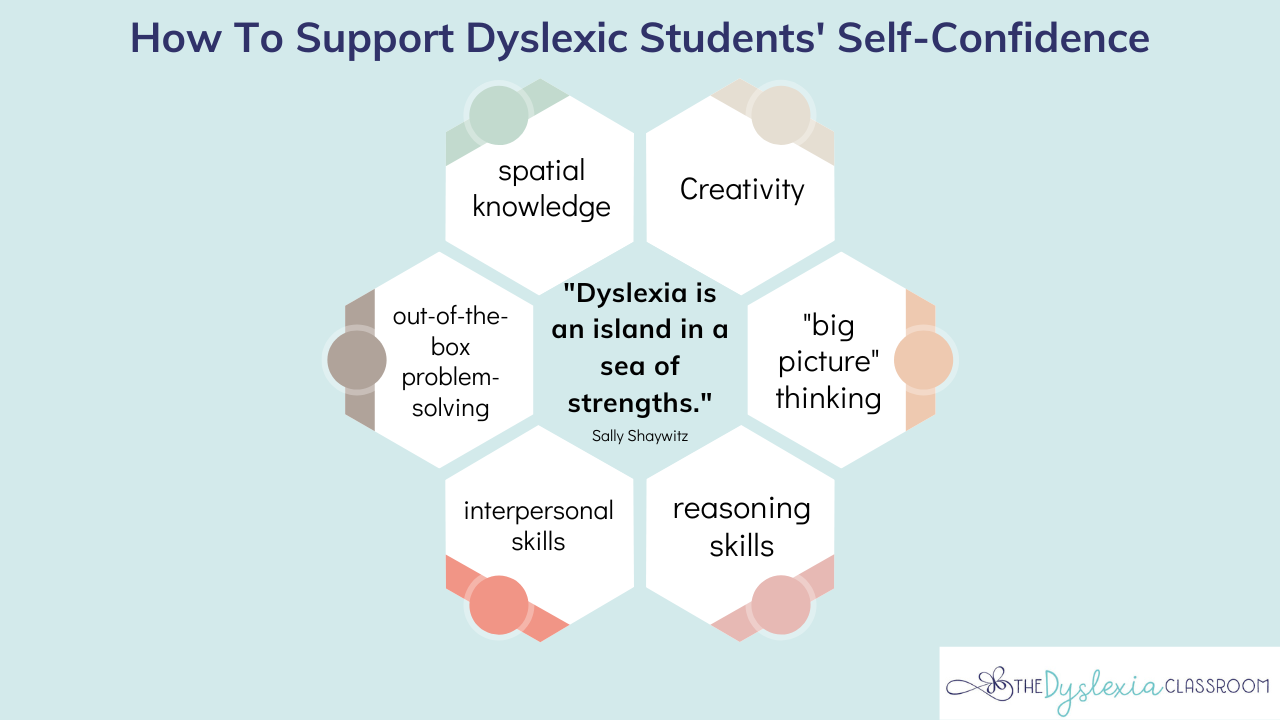
When we think of dyslexic students and struggling readers, we know that academic support is crucial to success. We understand that the science of reading and structured, systematic instruction is essential for students to achieve literacy success.
We also know that struggling children may be surrounded by feelings of shame, unacceptance, anxiety, and low self-esteem. In fact, research shows that 29% of dyslexic students also have depression and/or anxiety, some of which is heightened by the expectations and struggles that come along with dyslexia.
We all want our children to feel successful and confident and know the importance of looking at the other components that support student success. But it raises the question of how.
Support For Student Success
How do empathy and understanding of dyslexia support success and self-confidence?
How does the environment support success?
What role do mindset and metacognition play?
How can we build self-advocacy skills, and what is th...



